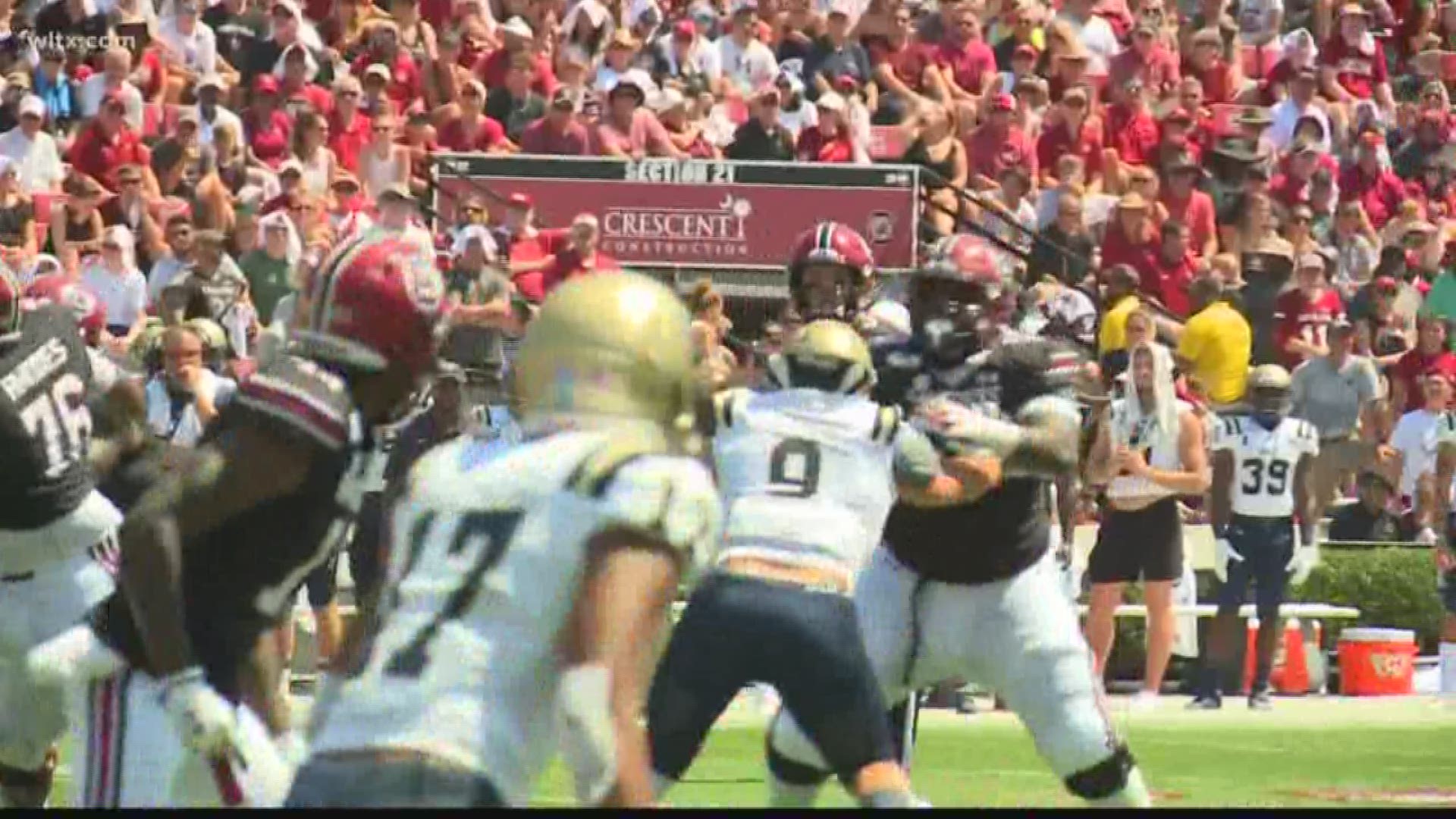COLUMBIA, S.C. — Some state lawmakers in South Carolina are approaching a discussion about paying college athletes with caution, expressing their concern with how it would work and what it would do to athletic programs.
The renewed conversation, set to kickoff in earnest at the State House in 2020, comes after California's Governor signed a law to allow players to hire agents and sign endorsement deals, according to the Associated Press.
California's law goes into effect in 2023.
South Carolina state Senator Marlon Kimpson, a Charleston Democrat, said he plans to push ahead with his proposed legislation to pay college athletes.
“This is legislation designed to reward the athletic activities, the sports that are generating the revenue. Why should the university buy a new horse with money made off a star player's name that he or she isn't participating in?” Kimpson said.
Kimpson's proposed bill, which he plans to introduce in the Senate at the start of the session in 2020, would pay some college athletes and provide other benefits.
- It would pay athletes for their time in profit creating sports. However, they must play at Division One schools bringing in more than $25 million in athletic revenue
- It would create a medical trust fund for the athletes to use after graduation, not capping $25,000
- It would allow college athletes to profit off their name and likeness
Kimpson said the money to pay and provide benefits would come from existing sports revenues.
“The chemistry student who's on full scholarship is able to work in the library for minimum wage, athletes should be no different,” Kimpson added.
Kimpson, reached over the phone Tuesday, said current student athletes on major teams are being exploited, as others make millions, if not billions, on their names and likeness.
The Charleston senator also pointed out the salaries of high-profile head coaches and their assistants, saying even after paying those salaries, schools could still afford to pay players. He continued, adding other teams at the universities would benefit less.
“It still would allow the universities to continue to subsidize those sports, in part,” Kimpson said.
RELATED: Should college athletes be paid?
Republican colleagues in the South Carolina House, Micah Caskey and Gary Clary, said the issue requires more study.
“Well I think we've got to see what the numbers say first. Because, before we start making commitments of we should do this. We've got to see what is possible. Because, otherwise, we just end up with more wish list economics,” Caskey said.
Caskey, a Lexington Republican, added he has concerns about how it would work.
“What I’m more concerned about is, what this means for the overall health and financial well-being of all the colleges and universities in the state. Not, just that one quarterback at one school, how is this really going to impact our smaller schools?” Caskey said.
Kimpson said his proposal affects Division One programs bringing in more than $25 million in revenue.
Caskey said the House’s decision to act on any student athlete compensation legislation in 2020 would depend on the amount of “vigor” given to study and debate the issue.
Representative Gary Clary, a Pickens County Republican in the heart of Clemson territory, also expressed concern.
“We don't kill the goose that laid the golden egg. At the end of the day, every year I hear people complaining about how much it costs to park, that they have to contribute to get that parking space, how much tickets are, somewhere along the line someone's going to be paying the way we compensate these athletes if we're using their images, profiting off of them. The key is going to be to find that sweet spot and how do you do it?” Clary asked on Tuesday.
Clary said the conversation needs to occur, but the devil is in the details.
“I don’t expect the taxpayers in South Carolina to have to be responsible for what goes on at athletic programs at Clemson or the University of South Carolina, Furman, anywhere else. That is something that these programs should be self sustaining and not supported by taxpayer funds,” Clary said.
In the meantime, sports fans and voters will have to wait and see till at least January of 2020 if the proposed bills get a touchdown or sack with the General Assembly.
“I think we’re in the infancy of it, I think we have a lot of issues in South Carolina to deal with that may eclipse this in the year ahead. So, it will be interesting to see what happens with it,” Clary said.
Representative Justin Bamberg, D – Bamberg County, is set to introduce a similar bill the House in 2020, according to Kimpson.

